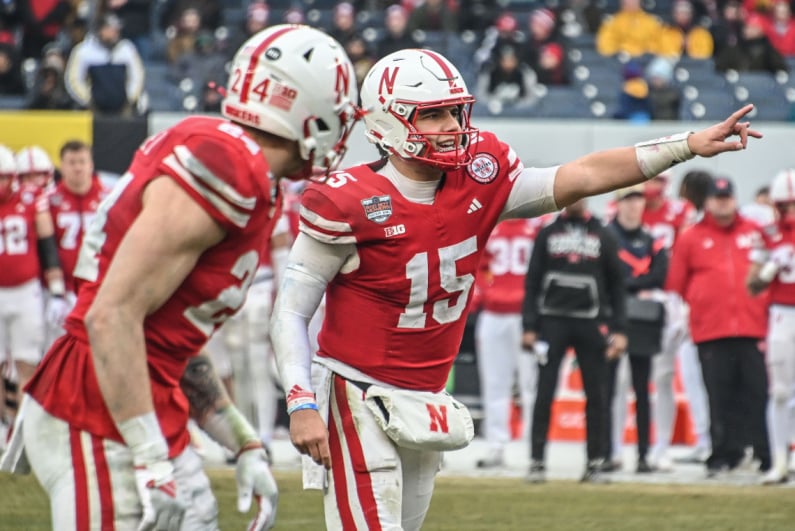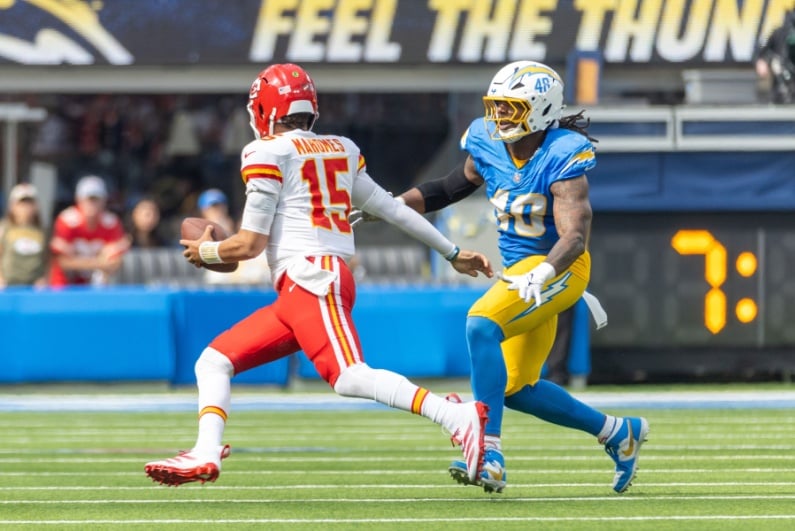More Augusta drama awaits
It is, without exception, the greatest tournament in golf. Of the four majors, this has the most prestige, glamor, and history.
Of course, I refer to The Masters, which tees off at the Augusta National Golf Course on April 10. The winner will be presented with the famous green jacket in the early evening of April 13.
a tournament that dates back to 1934
It’s known for its beautiful scenery, brilliant golf, and the many legendary golfers who have adorned the famous jacket. But it goes without saying that a tournament that dates back to 1934 has had its fair share of controversies.
Interestingly, it’s a golf club that prides itself on tournament organization that is every bit as pristine and perfect as the greens and fairways, and largely they succeed, so some of the big stories relate to incidents, comments, and actions that occurred off the golf course.
Let’s start back in the 1950s.
Ben Hogan vs Arnold Palmer (1958)
Back then, Hogan was the golfing legend whose career was starting to fade. It had been five years since he had won a major (the 1953 British Open). Palmer, meanwhile, was the 28-year-old pretender to Hogan’s crown, who had yet to win a Major Championship.
The two were paired together in a pre-tournament practice round and it was tradition that, following the round, those who had practiced together would then each lunch together. But Hogan famously broke with tradition and, probably to deliberately get under the skin of the young pretender, chose to eat lunch at a different table.
If it was an action designed to get a reaction from Palmer, it worked. The young pretender was well aware that this was a break from protocol and made his feelings known.
Hogan’s response is now the stuff of legend: “This Palmer, how did he get in the Masters?”
It was the opening salvo of a frosty relationship that endured. The pair were never destined to be best buddies.
But that week in 1958, it was Palmer who had the last laugh. He went on to beat not just Hogan but everyone else in the field to claim his first-ever major and green jacket.
Arnold Palmer vs Ken Venturi (1958)
But Palmer’s first Augusta victory was far from straightforward. It produced one of the most controversial moments in golfing history.
While his spat with Hogan happened outside of the main four rounds, he crossed swords with Venturi in the white heat of battle during the fourth and deciding round.
The pair were locked at the top of the leaderboard when, on the 12th, Palmer plugged his tee shot in a bunker. He was denied a drop by the officials, so he played the ball out of the bunker and eventually made a double bogey. But he also played a second ball on the same hole and made par.
incident caused him to lose his focus and concentration
While the pair were playing the 13th, the same tournament officials who denied him a drop decided to give Palmer credit for the par he achieved with his second ball. Understandably, it did not land well with Venturi, who claimed that the incident caused him to lose his focus and concentration.
Partly as a result of the controversial par, Palmer went on to claim his first of seven Major Championship titles, while Venturi was left fuming and feeling like he had been cheated out of his first win at Augusta.
Venturi spoke about the incident in his autobiography. “I firmly believe that [Palmer] did wrong, and that he knows that I know he did wrong … that is why, to this day, it has left me with an uncomfortable feeling.”
Jack Whitaker (1966)
TV coverage of The Masters has always been undertaken in the US by CBS, who adhere to the fairly strict and traditional wishes of the PGA and the Augusta National.
The commentators, as a result, tend to stick to facts and rarely offer opinion other than when, as a pundit, they are required to offer them. Even then, they tend to be non-controversial and non-inflammatory. At least they do most of the time.
But during the telecast of The Masters in 1966, famous commentator Jack Whitaker couldn’t help but notice the noisiness and increasing boisterousness of the crowd. So much so, he let slip in his live commentary the phrase “mob scene” when referring to the galleries.
Unsurprisingly, for an event that prides itself on good behavior and good manners, the comment was very badly received. So much so that Whitaker was banned from covering the next five events. He didn’t return to the commentary box until 1972.
Roberto De Vicenzo (1968)
On the fourth day of the 1968 Championship, it looked likely to be heading to a two-way playoff between De Vicenzo and Bob Goalby. That was until, remarkably, De Vicenzo somehow managed to sign an incorrect scorecard because his playing partner, Tommy Aaron, marked him for a par on the 17th instead of a birdie.
greatest faux pas in Masters history
As a result of Aaron’s mistake, the higher score stood, and Goalby went on to win his one and only Major Championship. It was one of the, if not the, greatest faux pas in Masters history.
“What a stupid I am,” was De Vicenzo’s now famous response to the incident.
Ron Townsend (1990)
In September 1990, Townsend became the first African-American to become a member at the Augusta National.
While this in itself was no controversy – although it should have been given that it took them until 1990 to relax their antiquated ruling – it was directly linked to another.
Earlier in that same year, Shoal Creek Golf Club, which hosted that season’s PGA Championship, caused a huge storm when it became known that it had no black members.
To retain the tournament and prevent the PGA from taking it elsewhere, the club reluctantly permitted a local businessman to join as an honorary member.
The PGA, realizing they should never again find themselves in a similar position, made a rule – effective from the beginning of 1991 – that the PGA Tour, PGA of America, and USGA must not hold any events at clubs with discriminatory membership policies.
While Augusta National claimed the timing of Ron Townsend’s induction was a pure coincidence, it was very clear that it was anything but.
Gary McCord (1995)
Jack Whitaker’s commentary controversy of 1966 was supposed to be the only one of its kind, but the Augusta National officials were forced to act again 29 years later.
During the 1995 tournament, another CBS commentator, Gary McCord, was taken to task when he commented that the 17th green appeared to be so slick it appeared “bikini-waxed.”
Not content with just the one ill-judged line, he doubled down on the crass comments by saying there were “body bags” behind Augusta’s greens for players who mishit their approach shots.
Unsurprisingly, neither comment was well received, and three decades later, he still hasn’t been permitted a place back in the Augusta commentary box.
Fuzzy Zoeller (1997)
Zoeller was a popular champion but was also known to make controversial comments at inappropriate times.
champion gets to host a champions dinner
In 1997, he etched himself a place in Masters infamy with a crass comment following Tiger Woods’ first-ever win in Augusta. The tradition at Augusta is that the champion gets to host a champions dinner, to which Zoeller remarked: “Tell him not to serve fried chicken … or collard greens or whatever the hell they serve.”
It was a comment that stayed with Zoeller and, despite him claiming no malice was intended, it saw him lose two of his main sponsors, K-Mart and Dunlop.
Martha Burk (2003)
Not only was Augusta very slow in allowing non-white members to join, but it also operated under the equally archaic premise that female members were not permitted.
So, upset with this men-only membership policy, Burk decided to take on club chairman Hootie Johnson in a very public and, at times, fiery battle.
During the 2003 tournament, Burk led a protest outside the club’s gates, which, although small in number (there were reportedly only around 40 participants), drew national media attention, specifically through the TV networks.
inducted its first two female members: Condoleezza Rice and Darla Moore
At the time, Johnson refused to budge on his stance, but nine years later, the Augusta National – then under the leadership of a new chairman, Billy Payne – inducted its first two female members: Condoleezza Rice and Darla Moore.
“I thought they were going to try to outlast me,” was Burk’s comment to The Associated Press. “But if we had not done what we did, this would not have happened now.”
And she was probably right.
Ernie Els (2004)
Els – who was known as the Big Easy – was almost at the heart of a huge rules controversy when his tee shot at hole 11 of his third round ended up behind a big pile of tree limbs.
He was denied a drop by two separate rules officials but persisted with his protest. Eventually, tournament director Will Nicholson overruled the two officials, and Els went on to make a bogey that kept him in the hunt for the title.
The South African admitted afterwards that he probably would have re-teed, where he would have made a double bogey at the very best.
So why was this almost a huge controversy but not quite?
Well, because on the final day, Phil Mickelson went on to birdie the 18th and beat Els to the green jacket by a single shot.
Rory McIlroy (2009)
A 19-year-old McIlroy caused something of a storm in his second round of the 2009 tournament following what, at the time, appeared to be a fit of pique.
After landing a shot in a bunker on the 18th, the Ulsterman appeared to lose his temper and kick the sand in anger. He proceeded to send his next shot onto the green, where he then two-putted and signed his card for a double bogey.
The incident was noted by the Augusta officials, and he was called back to the club later that evening to review the tape and discuss his actions.
opted not to award him a two-stroke penalty
Despite the evidence suggesting otherwise, McIlroy claimed he was smoothing out the sand and after a lengthy debate, the officials came to the same conclusion. They opted not to award him a two-stroke penalty, which would have seen him disqualified from the tournament for incorrectly signing a scorecard.
He ended up shooting a 286 and finishing in a credible 20th.
Rickie Fowler ( 2011)
McIlroy wasn’t the only youngster to land himself in hot water in the 21st century. US star Fowler also fell foul of Augusta’s exacting standards when, aged 22, he started a pre-tournament press conference with his hat turned back to front.
interview would be terminated
While it may have all been part of Fowler’s then-unique style, Augusta officials demanded that he wore the hat in the traditional way, or the interview would be terminated.
Initially, Fowler resisted and argued that he wore his hat backward so that people could see his face more easily, but the officials were unmoved. Eventually, the young American relented, and we were spared another “Hatgate.”
Scalped tickets (2012)
Scalped tickets are a problem at almost every sporting event, but 2012 saw it reach a whole new level when the strict rules of the Augusta National and Georgia state law combined to cause a mini-crisis.
During the three practice days alone, 41 people were arrested for selling tickets illegally, which, under state law, amounted to disorderly conduct. The main problem was that local laws dictate that Masters tickets cannot be sold within 2,700 feet of the course’s front gates and, crucially, cannot be re-sold to third parties.
Not only were those selling the tickets in big trouble, but fans who bought them also ended up in jail.
Tiger Woods (2013)
Think US Masters and you think Tiger Woods. For good reasons and bad. In 2013, it was the latter for which he was remembered.
During his second round, he had a stroke of bad luck when his approach shot to the 15th striked the pin and deflected off into the water. But the problem came when Tiger took an incorrect drop – something he admitted in a post-round interview with ESPN – which meant he had signed an incorrect scorecard.
deciding to award a two-stroke penalty
Tournament officials met late on the Friday night and early on the Saturday morning to discuss the issue before deciding to award a two-stroke penalty. They didn’t, however, disqualify Woods from the tournament as they concluded they knew about the possible rule break before Woods left the course but hadn’t challenged him.
As a result, Woods received a mixed reaction from the crowd for the final two rounds but, possibly as a result, was never a contender after shooting a pair of 70s and finishing in joint-fourth.
Tiger Woods (2019)
If 2013 was a tournament to forget for Woods, 2019 was the exact opposite. It was the comeback of comebacks.
After several seasons of controversy in his private life and poor form and injuries in his professional life, all of the above were forgotten in four glorious Augusta days in the spring of 2019.
At 43 years old, few expected Woods to win another major, let alone another Masters, but he surprised the golfing world with a 13-under-par 275 to see off the challenge of Dustin Johnson, Brooks Koepka, and Xander Schauffele, who finished on 276.
It was Woods’ first Masters win since 2005 and left him just behind the great Jack Nicklaus’ record of six wins at Augusta. Woods’ win came 10 years, nine months, and 29 days after his previous last major win – the 2008 US Open.




